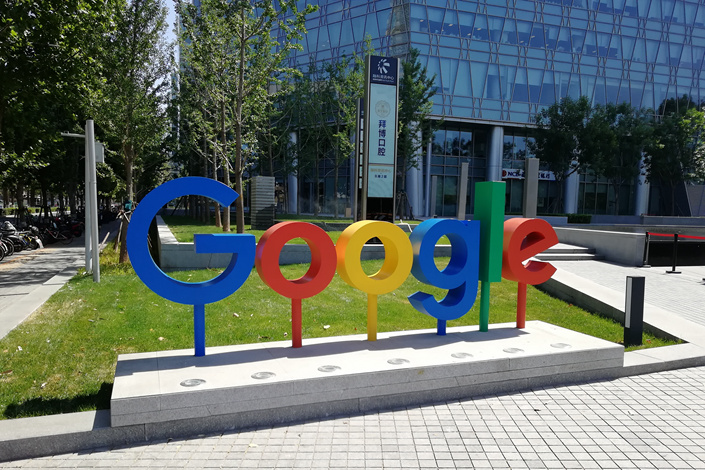SEARCH: Google Takes Offensive on China Search Return
Bottom line: Google’s decision to finally talk openly about its plan to return to China looks smart though slightly late, by explaining the desperate need for alternatives in the massive though tightly controlled search market.

After staying mum on the subject for quite some time, Google (Nasdaq: GOOG) is finally speaking out on its controversial decision to return to the China search market. Its CEO Sundar Pichai broke the company’s silence on the matter at an event this week sponsored by Wired magazine, going on the offensive to try and defend his company’s decision.
It does seem like the company should have taken this kind of more aggressive approach sooner, rather than waiting more than two months from when the news first broke. (previous post). From my perspective as someone living in China, this country is really in dire need of an alternative to current search leader Baidu (Nasdaq: BIDU), and the argument has nothing to do with propaganda or censorship.
Instead, the current situation in China reflects the very real dangers that can occur in this kind of a closed market when you get a monopoly like the one Baidu has. In this case Baidu has basically been abusing its market-leading position for years now, providing search results that are full of advertisements and self-promotional materials. That would be far less likely to happen in a competitive landscape.
Even in a situation like the West where Google has a similar near-monopoly, there is a robust community of people and organizations that watch out for things like individual privacy and misleading advertising. China has none of that, when has led to the situation there that Google is now trying to take advantage of.
A China return would be a relative coup for Google at least commercially, because it would be instantly welcome by many Chinese and thus could probably immediately draw away many of Baidu’s advertisers. But Google also needs to tread carefully to avoid getting hit by too many Western critics who accuse the company of complicity with Beijing, which requires strict self-policing for and quick removal of sensitive content on all websites
Against that backdrop, Pichai has finally fessed up to what everyone already knows by now by broaching the subject at the Wired conference in what looks like a carefully scripted way. Pichai was quick to point out that the China-specific search engine tested by Google was able to return relevant results to users in nearly all the cases trialed by the company. (English article) Of course we don’t know if people trialing the system used any sensitive terms that are off-limits to Beijing, which during Google’s previous stint in China would have simply brought back empty results.
Backhanded Swipe
Pichai also took a backhanded swipe at Baidu by obliquely referencing a scandal two years ago that badly tarnished the Chinese company’s name. He never mentioned Baidu by name, but simply referred to search engines that provide “fake cancer treatments.” That’s a not-so-unsubtle reference to the Baidu scandal that saw a cancer patient duped by an undisclosed advertisement in his search results into using an experimental treatment that ultimately proved ineffective.
Following the original news that Google was planning a return to the China search market, I conducted my own informal poll and found what many of us here in China suspect, namely that many Chinese would welcome Google’s return. (English article)
It’s quite easy for people on the outside to get all principled and outraged that Google would consider such a move. But the fact of the matter is that China’s 800 million internet users desperately need some better choices than what’s now available on the market, even if a returning Google wouldn’t contain search results on certain sensitive topics.
At the end of the day, I’m personally quite cynical and believe Google is much more interested in the money it could earn from a China return rather than anything more principled and mighty. But the market sorely needs some more choice, and Google is one of the few companies, and possibly the only one, positioned to offer that. Accordingly, I have to give my slightly-reluctant nod to Pichai for finally going on the offensive to explain his company’s decision, and do expect a new Google China search engine will be quite well received when it finally makes its debut.
